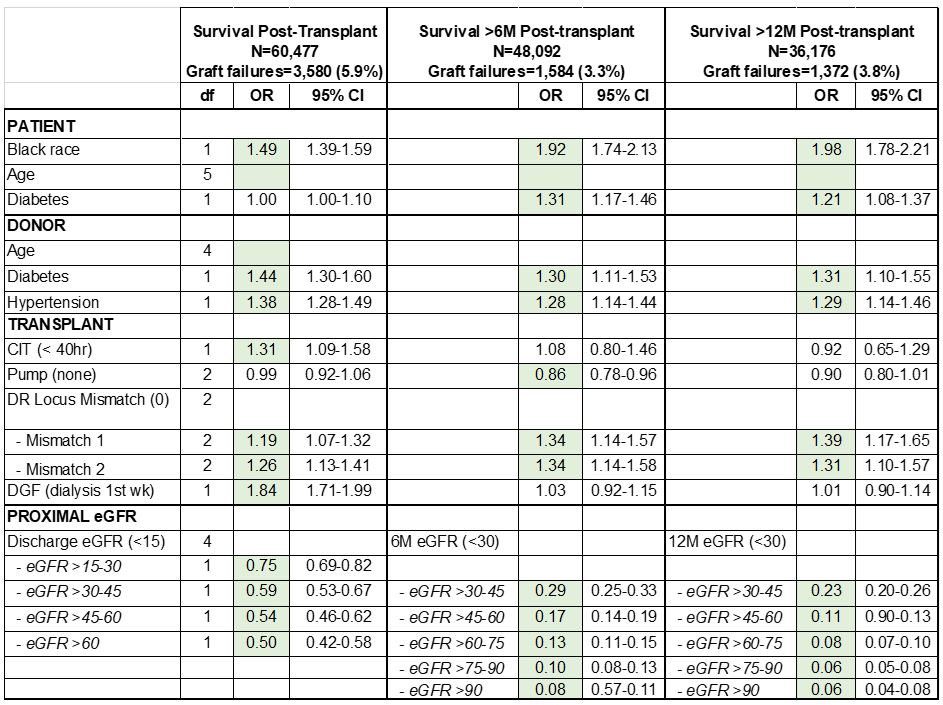The Evolution of Renal Graft Failure Risk: The Power of the Proximal
1Angion Biomedica, San Francisco, CA, 2Columbia University Medical Center, New York, NY
Meeting: 2020 American Transplant Congress
Abstract number: B-097
Keywords: Glomerular filtration rate (GFR), Graft failure, Kidney transplantation, N/A
Session Information
Session Name: Poster Session B: Kidney Complications: Non-Immune Mediated Late Graft Failure
Session Type: Poster Session
Date: Saturday, May 30, 2020
Session Time: 3:15pm-4:00pm
 Presentation Time: 3:30pm-4:00pm
Presentation Time: 3:30pm-4:00pm
Location: Virtual
*Purpose: Our goal was to examine the association of eGFR in the first year on long term outcomes following kidney transplant.
*Methods: The sample included kidney transplant patients (excluding multiple transplant) > 18 years who received a deceased donor kidney between 1/1/13 and 12/31/18 in the US. We assessed the association of eGFR at discharge, at 6 months and 12 months post-transplant on death censored allograft survival in 3 separate multivariable Cox models. All predictors were constant across models except eGFR. Variables were force entered sequentially by block (Patient, Donor, Transplant and eGFR).
*Results: Donor diabetes, hypertension, cold ischemia time, DR mismatch and DGF and discharge eGFR were all significant in the model of graft survival post-discharge. However, in the models of graft survival after 6 and 12 months, neither DGF nor the cold ischemia time remained significantly associated with death censored allograft failure; eGFR became the dominant predictor in the model (see table).
*Conclusions: Multivariable models that include eGFR at 6 or 12 months post-transplant demonstrate a lack of association between DGF & cold ischemia time and subsequent allograft failure. This suggests that the observed association between DGF & cold ischemia and graft failure is being driven by the early failures that occur within the first 6 months posttransplant, while proximal graft function is the best predictor of subsequent failure.
To cite this abstract in AMA style:
Mayne T, Mohan S. The Evolution of Renal Graft Failure Risk: The Power of the Proximal [abstract]. Am J Transplant. 2020; 20 (suppl 3). https://atcmeetingabstracts.com/abstract/the-evolution-of-renal-graft-failure-risk-the-power-of-the-proximal/. Accessed February 15, 2026.« Back to 2020 American Transplant Congress

